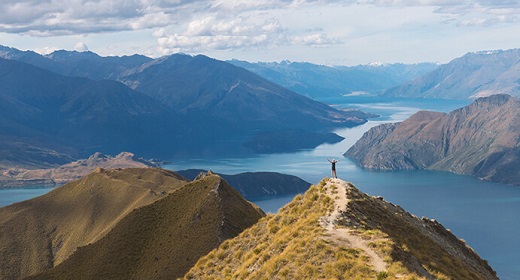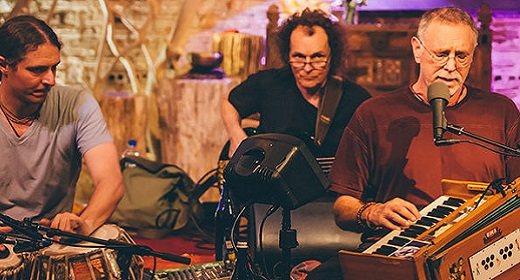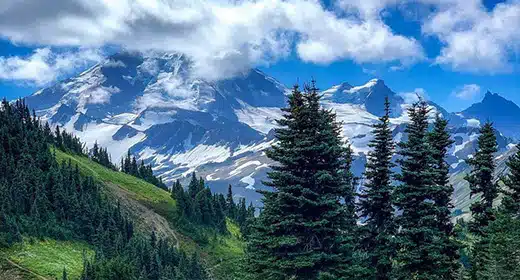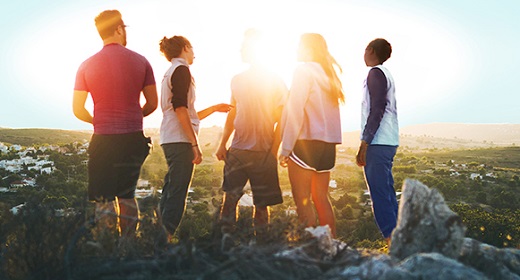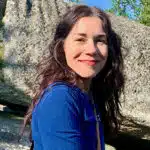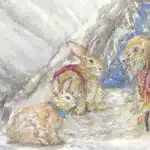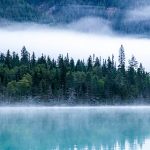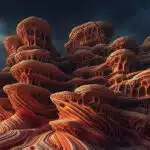by Molly Clarke: What I Gained from Having Less…
Earlier this year, before global lockdown, I walked New Zealand’s Te Araroa trail. My life had become very safe, comfortable, and consequently quite sleepy. I needed to remind myself that I had the strength and resilience to walk into the unknown again and again and carry myself through whatever showed up.
I love to be alone. I never found the companion that was so companionable as solitude. – Henry David Thoreau
There’s an assumption that women hiking alone is always unsafe. I had to grapple and overcome many fears and negative beliefs around this. I needed a balance of due diligence and trust. Heading alone into the wilderness is at times intimidating. There are many unknowns to be faced, one of them being whether you will make it to the safety and comfort of the next hut or the next town. If you get lost or injured you have only yourself to turn to and help could be hours or days away. And this, while being the edge that must be faced each day, is also the allure of undertaking such a mission. Such a mission of saying YES to aliveness and what makes my soul sing.
And having done this, having had this direct experience, the truth is, I never feel safer than when I’m walking alone in the wilderness. It takes strength and courage to keep going each day, granted. But the rewards are bountiful. Teasing myself out of sleepy to wide awake is always worth it — always!
I wish I could show you when you are lonely or in darkness the astonishing light of your own being. – Hafiz
For ten weeks I carried everything I needed to survive on my back: a tent, sleep mat and sleeping bag, a first aid kit, a torch, a change of clothes, a phone & power bank, food and water and a stove to cook, and for me, most importantly, to make cups of tea.

On very long trails, those taking a few days, if you are carrying more than you actually need your body struggles with the weight that’s bearing down on it. A spontaneous mental cull-list rapidly takes shape. In my case this happened on Day One! The tussle of what to discard and what to keep got easier with each and every step forward.
Pack weight is a pretty common topic of conversation amongst hikers, along with footwear, blisters and river crossings. So, it’s not long before pack contents are being discussed and examined. Regardless of how dedicated a person is to reducing their pack weight (and believe me, everyone is motivated to carry less), a simple truth prevails: almost every hiker packs more weight than is needed. And in some cases, it is hilarious what people believe they need – every personality is revealed here. It’s a lot like having only ten things to take on a desert island – what would they be?
What’s Essential, and What’s Not?
A general rule of thumb is that everything in my pack should only be there if it’s important (read necessary), and what’s more, every piece of gear should ideally serve at least two purposes. As the road winds ahead and the mind-chatter slows down and I leave my old life behind I find there is naturally space for contemplation. Time to think about the simple stuff and the important stuff. There’s space for making connections and asking bigger questions; a personal culling inventory also naturally takes shape. There’s a feeling of being able to re-fashion my life in a more authentic way, a real chance to re-choose a better way forward with my reinvigorated and refreshed values … It’s like polishing my compass to re-define my true north.
I like this idea of what is essential to my existence. Not just for hiking, but for my entire life. It contains very simple wisdom.
A Goldilocks Type of Wisdom
* I can buy something purely because it’s there and I have the means to buy it.
* I can choose not to buy something because I’m living under the principle of having the bare minimum of anything.
* I can assess the item, determine if I actually need it, identify at least a second (valid) purpose for it, and, if I can find one, then consider buying it.

This brings more consciousness to the way I purchase. It also brings more consciousness and awareness to the way I live my life. Taking time to consider the things I add to my life helps me to identify what’s essential, what I love, what’s important to me. Then I can choose to spend my time, energy, and money in ways that relate to my core principles and values; satisfying my essential needs and not betraying the planet’s resources, capacities and needs. Not too hot, not too cold … Just right!
I’m not a fan of minimalism. The word conjures up images of the modern-day stark aesthetic that seems to have gripped western architecture and design and extols the virtues of sterile clean lines. It’s an aesthetic that, quite literally, leaves me cold. Clean lines do not really exist in nature. The cleanest line in nature I can think of is the horizon, and even that’s blurry.
Essentialism however – Now that’s a philosophy and perspective I can truly warm to.
“Minimalism: deliberate lack of decoration or adornment” – Lexicon Dictionary
“Essentialism: systematic discipline for discerning what is absolutely essential, then eliminating everything that is not” – Greg McKeown
I’ve always understood minimalism to be the phenomenon of having very little stuff for the sake of having very little stuff; and essentialism as having precisely what you need, and nothing more. The difference can almost seem semantic but in my mind, it’s quite significant. More and more environmentalists are getting clearer on how simple acts of essentialism are making a substantial difference to the health of the planet and that is reflected in our own wellbeing – especially mental health.
Making Space for What’s Truly Important
Focusing on what’s essential in this way brings me into the Now. And usually, what I need in the moment is actually quite modest: food, safe shelter, the ability to stop, relax and sleep comfortably, connection, and a sense of belonging. Once I had a safe place to lay my head each night all of those needs were met, even the sense of connection and belonging. There was an instant camaraderie with other hikers. Being filthy and smelly and sore and hungry together is a great leveler. We were all in the same boat, and being in the same boat fosters connection and belonging every time! It invites us into the humility of our shared humanity. Into the essential and effortless breath of life.
I find the ability to be in touch with the essential is that bit easier when I am steeped in nature. Nothing is ever wasted. Everything has a purpose. Every leaf that falls breaks down and, if left undisturbed, turns to compost, and nourishes the soil and the seeds of new life. Nature is the ultimate teacher in essentialism. And as I breathe in and out that teaching, that nourishing and regenerative philosophy, I find myself both renewed and ancient. I find myself individually striding into the whole. I feel the beauty around me and just feeling that beauty for me is a great gateway into gratitude. And gratitude keeps my heart, mind and being alive in the mystery of this journey and the next.

Life After Death by Laura Gilpin
The things I know:
how the living go on living
and how the dead go on living with them
So that in a forest
even a dead tree casts a shadow
and the leaves fall one by one
and the branches break in the wind
and the bark peels off slowly
and the trunk cracks
and the rain seeps in through the cracks
and the trunk falls to the ground
and the moss covers it
and in the spring the rabbits find it
and build their nest inside
and have their young
and their young will live safely
inside the dead tree
So that nothing is wasted in nature
or in love.







